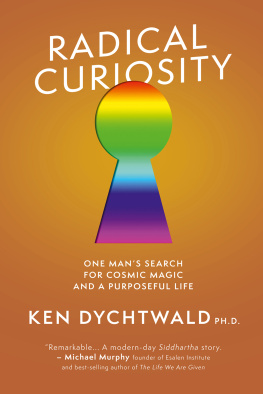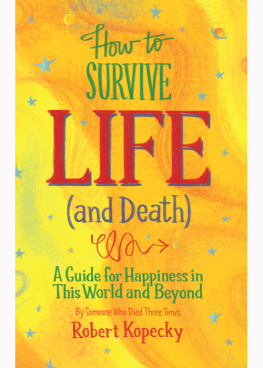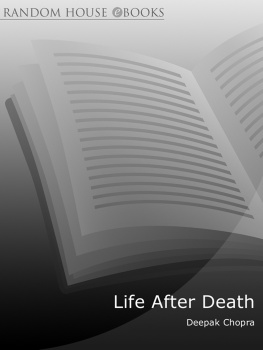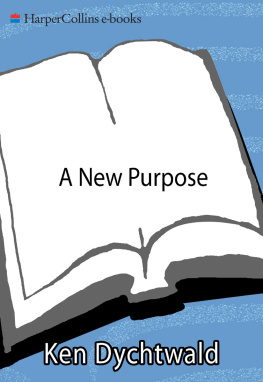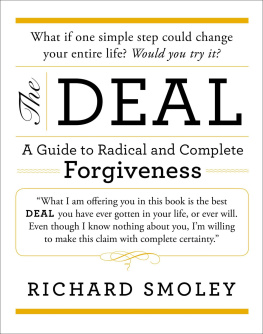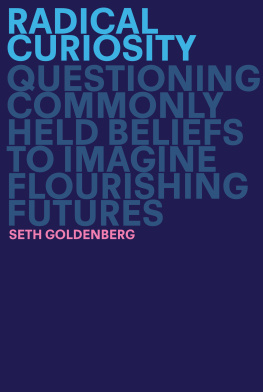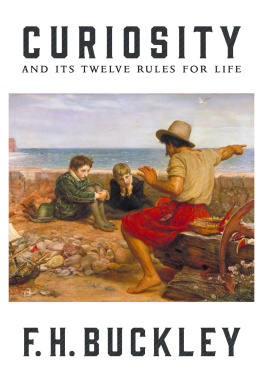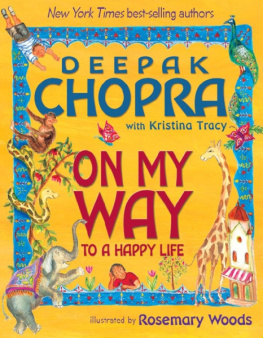
RADICAL CURIOSITY
ONE MANS SEARCH FOR COSMIC MAGIC AND A PURPOSEFUL LIFE
KEN DYCHTWALD PH. D.
AN UNNAMED PRESS BOOK
Copyright 2021 Ken Dychtwald
All rights reserved, including the right to reproduce this book or portions thereof in any form whatsoever. Permissions inquiries may be directed to . Published in North America by the Unnamed Press.
www.unnamedpress.com
Unnamed Press, and the colophon, are registered trademarks of Unnamed Media LLC.
ISBN: 978-1-951213-31-2
Library of Congress Cataloging-in-Publication data available upon request.
This book is a work of nonfiction
Cover Design by Robert Bieselin
Designed and Typeset by Jaya Nicely
Manufactured in the United States of America by Versa Press, Inc.
Distributed by Publishers Group West
First Edition
To Casey and Zak
May your futures be filled with love, health, hope, big dreams, grand adventures and purpose.
CONTENTS

RADICAL CURIOSITY
INTRODUCTION
WHAT SCARES ME ABOUT GROWING OLD
Eventually you will reach a point when you stop lying about your age and start bragging about it. Will Rogers
For more than forty years, as a psychologist/gerontologist and CEO of Age Wave, Ive dedicated a lot of my career to investigating how people, especially boomers, relate to becoming elders. Meanwhile, in my personal life, I got married and had children, watched both of those children leave the nest and make lives of their own. I have been in the presence of both my dad and then my mom as they passed away. I celebrated my sixty-fifth birthday and then, during COVID, my seventieth. Gliding along at the speed of life, it turns out I have become an elder myself.
Sometimes, when people see a picture of a younger me from one phase or another, they comment on how much fun it is to get a glimpse of who I used to be. However, I still am those younger versions of Ken Dychtwaldall of them. In fact, Ive discovered that growing older hasnt been a Lego-like replacement of young Ken figures with increasingly older versions. Instead, all of these younger selves are still very much alive and thriving, layered and integrated over the years into a fuller, more experienced, wiser, and more complex human who continues to grow and evolve. Through this lens, I have come to appreciate that aging is not necessarily a process of decline, loss, and diminishment. Quite the opposite: while there is definitely loss and suffering to be grappled with, the journey to and through elderhood seems to be a continually fascinating and unfolding journey of the flowering and flourishing of life.
This book began as an effort to gather many of my key life lessons and stories, especially the ones that reveal and reflect the truths and values I hold most dear. And yet, as I worked on it, it evolved into something more. I noticed that Im able to keep those past versions of myself alive in my present self, thanks in large part to the way that Ive lived my life, something that I came to recognize as radical curiosity. Supported by my memories and some (often wild) experiences, the lessons in this book may also serve as a guide for your own journey, as long as you are open to it.
Because I wrote so much about aging when I was young, people today occasionally ask me how the experience of growing old feels to meand whether its different from how I characterized it when it wasnt yet personal. Its one thing to cite a statistic, you know, such as 83 percent of people age sixty-five and over have at least one chronic health condition. But to be near when close friends and loved ones have gotten knocked to their knees with illnessor to begin worrying about my own or my wifes age-related scary stuffis intense, and impossible to imagine before you get there.
Ive continually found myself banging into other peoples attitudes as to whether aging is a good or a bad thing. Once when Morley Safer was getting set to interview me for a segment on 60 Minutes, he told the New York studio crew, Ken Dychtwald has talked to more people about aging than any human being in the history of the world. In truth, it isnt a black and white issue. Ive wondered, Is aging something to be embraced or conquered? Should we be pro-aging or anti-aging? Marketers are busy shaming people about their aging bodies in order to persuade them that theyd be happier if their skin, hair, weight, and faces were younger. Gray Panthers such as Maggie Kuhn implored people to be proud of their age. I have repeatedly found myself confused as to whether people are even talking about the same thing when they use the word aging. With some reflection and untangling of ideas, I have come to believe that there are four different flavors of agingand that much of the confusion comes from conflating or confusing them. Heres my attempt at clarification and how I currently feel about my own aging process while still fully immersed in my ever-challenging journey of life.
Chronological aging is dependent only on the passing of time. Inexorably, we become a day older each day. We are not alone: the same is true for trees, frogs, and even the sun. This is not to say that with each passing day we humans become more or less happy, more or less beautiful, more or less awaresimply one day older. In chronological time there is no absolute relationship between age and happiness, beauty, or knowledge; there is only the steady ticking of the clock and the continual accumulation of minutes, days, and years. So, twenty-five years after our birth, we become twenty-five years old; fifty years after our birth, we celebrate our fiftieth birthday, and so on. One other potent aspect of our chronological age is that it anchors each of our lives to a particular era and moment in time. For example, although I turned fifty in the year 2000, that I was born fifty years earlier in 1950 says a lot about who I am and how I might see myself and the world. If I had been fifty in the year 1279, Id for sure be a lot different. And last, you dont start aging on your sixty-fifth birthday. Its not a process reserved for old people. You began aging when you were conceived.
Psychological aging is the normal developmental process of growing up while migrating through the various experiences and transitions of our lives. Hence, the baby becomes a child, who then becomes a teenager, who then becomes a young adult, and so on until she eventually becomes an elder. Some people also view maturity as a time when the deepest aspects of ones spiritual self ripen and blossom. While spiritual awareness doesnt always emerge with the passing of birthdays, it is frequently the case that the more years and experiences one has and the more lessons learned from those experiences, the more opportunities for spiritual development.
Then theres our aging-related social roles. This aspect of aging is a bit fickle and tends to shift around as demographics, cultural trends, fashions, fads, and lifestyles alter. For example, in colonial America, people were seen as acquiring great perspective and authority as they grew older. By age sixty, an individual might feel as though he had arrived at a powerful stage in life, a time to assume the role of family head, take charge of community decisions, and enjoy the fruits of a long, full life. Thats the way aging has been viewed in many parts of the world throughout history. However, as America became more industrial and urban, this modernization began to maniacally elevate the look, feel, and mind-set of youth, which significantly diminished the importance of elders. Soon, the older one became, the more he or she was viewed as over-the-hill or irrelevant. In this recent youth-dominated era, growing older has largely come to be viewed as socially negative, and many people therefore wish they were still young, or dont want to be thought of as old no matter what their actual age.
Next page
